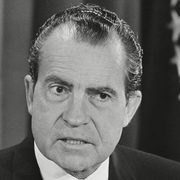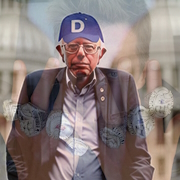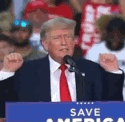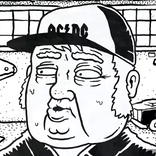|
Fried Chicken posted:so yeah, your entire point is "well why can't I use racial slurs if they are true?". gently caress off. Calling out Alan West for being a traitor to the black community in those exact words is now a racial slur. Glad you took the time to lay out your compelling argument dumb rear end.
|
|
|
|

|
| # ? Jun 9, 2024 19:52 |
|
Unzip and Attack posted:Calling out Alan West for being a traitor to the black community in those exact words is now a racial slur. Glad you took the time to lay out your compelling argument dumb rear end. Glad you are down to quoting Freep arguments and straw manning the exact opposite if what I have been saying. Wait, no, that's been what you've been doing all along. National Geographic did a thing on hunger in America. It's pretty good, what it lacks in wonkishness it makes up for in the usual NatGeo style http://www.nationalgeographic.com/foodfeatures/hunger/
|
|
|
|
Sephiroth_IRA posted:Yeah, my wife is Latin and while she came here legally she has a lot of family and friends here who are not and there pretty open about it around me. Like I said I have no ill feelings toward undocumented immigrants because I know I would have done the same thing if I was in there shoes. However, I still think its bullshit when corporations knowingly hire them in order to lower wages and so they can get away with treating workers like garbage. So I'm all for amnesty (give all the ones already here a green card with a probationary period) but only if regulations are put in place to make legal immigration easier and to inhibit employers/governments from incentivising illegal immigration. "When it does" are the key words here. Stories pop up every now and then when you have companies give undocumented immigrants social security numbers so that they can pass verification. This was part of the Tyson's Chicken investigation way back when. Chipotle had several as well which was discovered after the fact. Of course, they got off easy though, so the problem will persist.
|
|
|
|
Having been in both academia and hiring H1Bs into industry...yep, that's pretty much par for the course. Employers know they have no recourse to abuse.
|
|
|
|
Fried Chicken posted:I thought he was referring to Pan Am 103 Nah, I don't buy into the FALSE FLAG(!!!) conspiracy theory for Lockerbie.
|
|
|
Acelerion posted:Having been in both academia and hiring H1Bs into industry...yep, that's pretty much par for the course. Employers know they have no recourse to abuse. Most of those pushing for more H1B visas in tech (Facebook) clam up when you suggest reforming the program to allow the holders to hop employers as part of any increase. At least it isn't as bad as the TFW stuff going on in Canada though. Shifty Pony fucked around with this message at 16:03 on Jul 18, 2014 |
|
|
|
|
Sephiroth_IRA posted:However, I still think its bullshit when corporations knowingly hire them in order to lower wages and so they can get away with treating workers like garbage. So I'm all for amnesty (give all the ones already here a green card with a probationary period) but only if regulations are put in place to make legal immigration easier and to inhibit employers/governments from incentivising illegal immigration. Matt Taibbi's "The Divide" posted:So in February 2011 some of those leaders marched on down to Atlanta to complain. Speaking before the state senate's Special Committee on Immigration and Georgia's economy, Tom Hensley, president of a chicken processing firm called Fieldale Farms that is a big presence in the Gainesville area, stood up and complained about 287(g).
|
|
|
|
Nonsense posted:Did Beamed ever return to show that leftists are real racists? Yes, I posted a list of quotes that took 5 minutes to find, not bothering to go into the half-broken archives, and you 3 hosed off, because apparently you think being a Leftist means you have to be racist I guess? I'm not sure why you assume I'm at all right of center because I don't use racial epithets, but hey, free country and all.
|
|
|
|
Shifty Pony posted:Not accepting US passports is the most mind bending thing about a lot of these voter-id things. The process of getting one is far beyond the stringency required to get driver's licenses in most of the states. A passport isn't just evidence of legal status in the US (which is all that is required for even the most restrictive states for a driver license), it is straight up proof of citizenship. The "problem" with passports as voter ID is that they don't provide verification of where you live - I have had the exact same passport while I lived in 5 different states. (In theory voter registration weeds that problem out anyway, but there is a more-logical-than-usual argument against passports as voter ID.)
|
|
|
|
Shifty Pony posted:Not accepting US passports is the most mind bending thing about a lot of these voter-id things. The process of getting one is far beyond the stringency required to get driver's licenses in most of the states. A passport isn't just evidence of legal status in the US (which is all that is required for even the most restrictive states for a driver license), it is straight up proof of citizenship. To be fair to proponents of voter ID, passports don't have the individual's home address on them, so it's impossible to confirm that the individual is a resident of that particular state, only that they are a citizen of the United States.
|
|
|
|
Fried Chicken posted:Glad you are down to quoting Freep arguments and straw manning the exact opposite if what I have been saying. Wait, no, that's been what you've been doing all along. Fried Chicken posted:so yeah, your entire point is "well why can't I use racial slurs if they are true?". gently caress off. Unzip and Attack posted:I agree with you that loaded terms like Uncle Tom should not be used by white people. Unzip and Attack posted:I'm not a fan of using terms like "Uncle Tom" and the like because as you said, those terms have racial baggage and aren't constructive. Let me show you how on multiple occasions I have said that using these terms is wrong. Describing their actions as being traitorous or extremely harmful to their own race is different than saying someone is an "Uncle Tom". I think the former is ok and that one does not have to be a member of that group to make that supposition. The latter I do not agree with and have stated so multiple times, despite your continued inability to understand basic loving language. I don't know if you're drunk or pretending to be the world's dumbest poster but my point is made and your continued insistence that I am a Freeper or a racist makes you look like a fool.
|
|
|
|
Would you two get a room already?
|
|
|
|
StandardVC10 posted:Would you two get a room already? It is somewhat obnoxious now that the argument has spanned 15 pages.
|
|
|
Kalman posted:The "problem" with passports as voter ID is that they don't provide verification of where you live - I have had the exact same passport while I lived in 5 different states. But that isn't the "logic" and legal justification behind photo voter ID. You are just trying to confirm that the person in front of you is who they say they are. The rolls establishing residency to vote presumably (as you pointed out) have been vetted either at the point of registration or between registration end and election day to ensure that the addresses match with the name given.
|
|
|
|
|
Are two extremely liberal people trying to accuse one another of racism?
|
|
|
|
It's much easier to not use racial slurs against people when there are other things that you can call them that are very accurate without having to justify using racialized language! I mean calling Allen West a scumfuck war criminal is pretty satisfying...
|
|
|
|
ComradeCosmobot posted:It is somewhat obnoxious now that the argument has spanned 15 pages. Yeah well maybe I'm being too stubborn about it but I'm not used to being labelled a racist after being accused of advocating for the use of racial slurs in response to me having repeatedly condemned the use of said racial slurs in the same drat thread. It's not something I encounter every day. zoux posted:Are two extremely liberal people trying to accuse one another of racism? No, I have not accused anyone of anything other than being unable to read and understand very simple statements like "Uncle Tom is a loaded term don't use it." But nope, racist/Freeper "Why can't I say n-----!!!" Unzip and Attack fucked around with this message at 16:17 on Jul 18, 2014 |
|
|
|
ComradeCosmobot posted:To be fair to proponents of voter ID, passports don't have the individual's home address on them, so it's impossible to confirm that the individual is a resident of that particular state, only that they are a citizen of the United States. Yea, and laws like NC's new law go even further. My understanding is your ID needs to have an address in the precinct where you're voting not just in the state. Even in-state college students have to go get new licenses and car registrations to comply with the law and vote where they go to school. And of course many of them move every August when school starts again, which gives them just a few weeks to get all their paperwork in order and register to vote in election years.
|
|
|
|
Shifty Pony posted:But that isn't the "logic" and legal justification behind photo voter ID. You are just trying to confirm that the person in front of you is who they say they are. The rolls establishing residency to vote presumably (as you pointed out) have been vetted either at the point of registration or between registration end and election day to ensure that the addresses match with the name given. There's more than one "John Smith" out there, and without the home address he could vote all over the place! It's stupid because voter fraud doesn't exist, but the notion that the id used to vote in elections where your eligibility is dependent on your home address should include your home address isn't itself insane. It's just trying to solve the same nonexistent problems.
|
|
|
|
Joementum posted:I just wanted to mention that Chris McDaniel still hasn't conceded and is in the middle of a barnstorming effort that he's calling the "Truth and Justice Tour". Good. Let him suck up dollars and energy from some of the biggest shitbirds in the country and cause rifts and animosity among the Mississippi GOP.
|
|
|
|
Joementum posted:Nah, I don't buy into the FALSE FLAG(!!!) conspiracy theory for Lockerbie. I meant sound and fury but ultimately didn't do anything, not conspiracy
|
|
|
|
Joementum posted:I just wanted to mention that Chris McDaniel still hasn't conceded and is in the middle of a barnstorming effort that he's calling the "Truth and Justice Tour". Has anyone told him yet that Mississippi already certified Cochran as the winner?
|
|
|
|
Unzip and Attack posted:Yeah well maybe I'm being too stubborn about it but I'm not used to being labelled a racist after being accused of advocating for the use of racial slurs in response to me having repeatedly condemned the use of said racial slurs in the same drat thread. It's not something I encounter every day. quote:No, I have not accused anyone of anything other than being unable to read and understand very simple statements like "Uncle Tom is a loaded term don't use it." But nope, racist/Freeper "Why can't I say n-----!!!" This is amazing, you realize people can hit the page back button and see you arguing that white people using these terms is fine, because "what else would you call group 13 then?" :smuhg:
|
|
|
|
zoux posted:Are two extremely liberal people trying to accuse one another of racism? Joementum posted:Nah, I don't buy into the FALSE FLAG(!!!) conspiracy theory for Lockerbie.
|
|
|
|
Ignore me, I don't know planes.
|
|
|
|
mcmagic posted:It's much easier to not use racial slurs against people when there are other things that you can call them that are very accurate without having to justify using racialized language! I mean calling Allen West a scumfuck war criminal is pretty satisfying... That's pretty much what I get too, only I take it a step further. If someone has a bunch of lovely opinions that are bad for the disadvantaged in general, and you go for calling them a race traitor over all of those, it suggests that for you the most important thing is that they're not keeping to their own kind as god intended. Even if really you did it for rhetorical zing and rather than because you really believe that the races must advance their own groups outside of other humanitarian and ideological concerns.
|
|
|
|
Can we all just stop this derail and agree that liberals can be and often are as racist as conservatives, if maybe just not as self-aware about it?
|
|
|
|
Amergin posted:if maybe just not as self-aware about it? you're funny
|
|
|
|
quote:The sound a wet fart makes
|
|
|
|
Amergin posted:Can we all just stop this derail and agree that liberals can be and often are as racist as conservatives, if maybe just not as self-aware about it? I might've agreed before Obama was elected.
|
|
|
|
zoux posted:I might've agreed before Obama was elected. When a black GOP member gets nominated president and the cries of "Uncle Tom!" arise from the liberal base, I hope you remember when you said this.
|
|
|
|
Amergin posted:When a black GOP member gets nominated president oh man where do you get this stuff
|
|
|
|
HorseRenoir posted:Fun fact about the MH17 plane crash: roughly one third of the people who died in that plane were important researchers, health workers, and activists on their way to a conference about AIDS We all know Putin hates the gays, I think we can wrap up who shot down the jet. (yes, I know more than just gay people have AIDS, but I'm not a hardline conservative)
|
|
|
|
Amergin posted:When a black GOP member gets nominated president and the cries of "Uncle Tom!" arise from the liberal base, I hope you remember when you said this. Yeah that wouldn't even approach the level of 19th century style racism that I've seen from the right since 2008.
|
|
|
|
axeil posted:It was also carrying a sitting US Congressman at the time. Both the Malaysian flight and the Vincennes incident were the results of twitchy, poorly trained anti air crews in a hot combat zone failing to properly identify radar contacts. KAL 007 was shot down by an interceptor jet who visually identified it as a passenger liner but shot anyway. For some reason, that's supposed to be a good comparison for the Republicans.
|
|
|
|
Amergin posted:If you're too lazy to go get an ID, why should you be allowed to vote? Uh, what? ID-issuing offices are not really that accessible. Plus, on top of getting there, you've got to take half a day off from work and wait around for an hour or two. And God help you if you don't have the right seal on your birth certificate or something. Comparatively, one can learn about the candidates by having CNN on in the background while they cook dinner - zero time spent (that may not be up to D&D standards of informed, but it's better than half the country). Amergin posted:It's not a non-problem, it's a small problem, one that can solved with a simple solution of requiring an ID for identity verification. There is no reason, if these IDs are free and provided to people, that minorities should be harmed by this. And so far they haven't been. So just to clarify - you're so Pro-Big-Government that you support costly solutions with the real risk of major side effects in order to solve extremely small problems? Do you support mandating wearing kevlar bodysuits to swim in to prevent shark bites?
|
|
|
|
Amergin posted:When a black GOP member gets nominated president and the cries of "Uncle Tom!" arise from the liberal base, I hope you remember when you said this. That's because all black GOP members are Am I doing this right?
|
|
|
|
goddamnit why is this conversation still going on The issue with Jaeger's strict reading of the ND voter ID law is that the affected tribes don't have the money to reissue IDs and Jaeger loving knows it. And many members of the tribes are extremely poor, so they don't have access to means to get to other forms of ID. And on top of that, and the article didn't really touch upon this but I've posted about it in earlier threads, there's the issue of just getting to the ballot box which would require expanded early voting hours and/or voting on rez. This is what Wandering Medicine v. McCulloch is trying to fix. Fake edit: here it is. I posted it last month but read it again, it's at least more interesting than this slapfight: http://billmoyers.com/2014/06/11/the-missing-native-vote/ quote:It was mid-April, and Montana was gearing up for this year’s primary election. Voting would get underway in Big Sky Country on May 5, with a month of advance voting by absentee ballot — by mail or by delivering a ballot to the county courthouse — leading up to primary day on June 3. If people hadn’t registered, they could head to the courthouse to sign up.
|
|
|
|
Jackson Taus posted:Uh, what? ID-issuing offices are not really that accessible. Plus, on top of getting there, you've got to take half a day off from work and wait around for an hour or two. And God help you if you don't have the right seal on your birth certificate or something. Comparatively, one can learn about the candidates by having CNN on in the background while they cook dinner - zero time spent (that may not be up to D&D standards of informed, but it's better than half the country). While I agree on the first part, the second makes me think back to the study that suggested people who just leave 24 hour news channels running a lot know less about the news than people who don't follow it at all.
|
|
|
|

|
| # ? Jun 9, 2024 19:52 |
|
I'm gonna name my pet unicorn which farts rainbows and bitcoins Uncle Tom in commemoration of the day the GOP nominates a black presidential candidate.
|
|
|




































